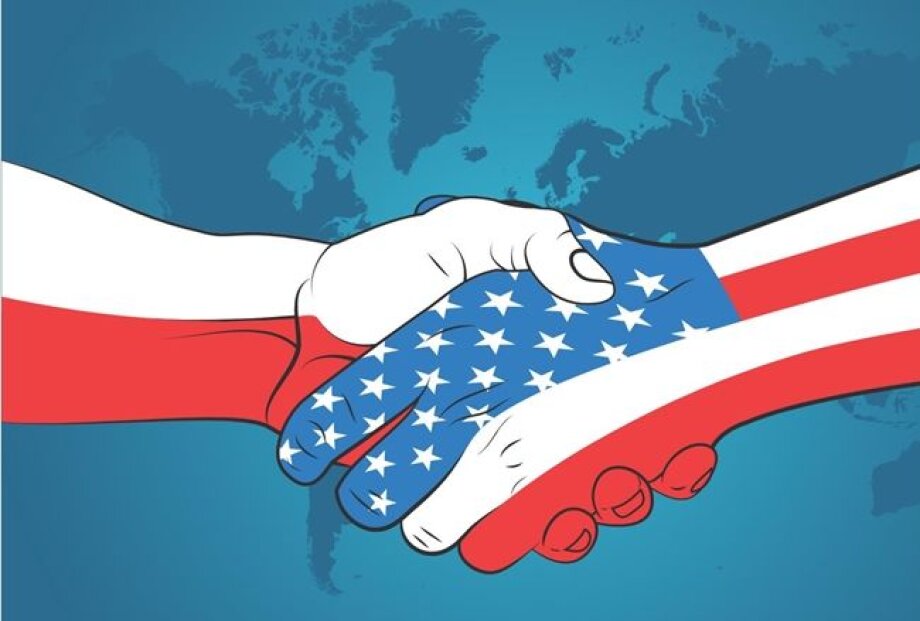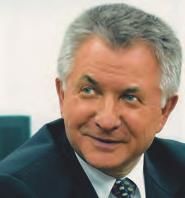A high-stakes game
WBJ sat down with Professor Longin Pastusiak, a political scientist specializing in American studies, to talk about Polish-US history and future relations INTERVIEW BY EWA BONIECKA

WBJ sat down with Professor Longin Pastusiak, a political scientist specializing in American studies, to talk about Polish-US history and future relations INTERVIEW BY EWA BONIECKA

WBJ: In your latest book, World and Poland, you wrote: “1989 was a year of an actual breakthrough not only in the history of Poland but also in Polish-American relations. The systemic transformation in Poland led in effect to changes in the nature of Polish-American relations from co-existence to a political and military alliance. This breakthrough was also supported by the fact that Polish society has traditionally approached the US with great affection.” Years have passed since then, the governments in Poland and the US have changed many times and there have been significant changes in international relations, but the fundamentals of the friendly relations between Poland and the US seem solid. How do you view the relationship at the moment?
Longin Pastusiak: Let me start with some references to history. Poland’s relationship with the US dates back to the beginning of US independence. In my research, I identified 123 Poles who fought during the American Revolution, the most well-known being Tadeusz Kościuszko and Kazimierz Puławski. And US President Woodrow Wilson played an important role in Poland gaining independence after World War I.
In 1920, Poland and the US established diplomatic relations for the first time, which were maintained in spite of the political system in Poland. Even when Poland was a member of the Soviet Bloc, it had the best relations with the US among all the members of the Bloc. Coming to the present bilateral relations between Poland and the US, we have to look at them from many different aspects.
Which of those aspects are important?
The US and Poland are countries of different political and economic potential in all aspects and have very different roles in the current international environment. The US is still the world’s superpower and leader of the West, but it is not omnipotent; it cannot impose its own way of resolving international problems. Washington has to deal with the growing potential of China, it is involved in new local conflicts, it is searching for alliances in south-east Asia and the Middle East, it is pressing its own approach to international climate agreements, it has withdrawn from some international agreements, it interferes in trade relations with other countries, and it is also trying to weaken the EU.
What role can Poland play here?
Polish diplomacy should be aimed at advising the US and the EU to reach a compromise and resolve the tension that exists. But Poland, as a member of the EU – in contrast to many Western members – has not been critical of US foreign policy in certain matters.
The Polish government wants to convey to Washington the idea that Poland is its closest European ally, regardless of whether or not the US government treats Poland as a special partner. We are friends, but we do not have the status of the main partner in US political games.
Poland regards the US as the main guarantee of our security and is doing everything to increase the presence of US soldiers in our country. Poland is developing meaningful trade and investment ties with the US, celebrating the import of gas from the US to Poland as part of a 24-year contract. So bilateral relations between our countries are active.
What do you think about the US visa policy towards Poland?
The US continues to go about conducting its global policy and wants to impose its position in all areas, fighting strongly for its own interests. In December 2002, as the Speaker of the Polish Senate, I asked the Vice President of the US to abolish the obligation for Polish citizens to have visas to enter the US. That request has not yet been granted.
What is your view of the internal situation in the US and Donald Trump’s policies and actions? There is a lot of criticism about him and his internal and foreign policy from the media and politicians in both the US and Europe.
I am aware of the criticism, but as a political scientist, I must remain emotionless in my assessment of President Trump’s personality and his actions. President Trump inherited a good economic situation in the US and he is maintaining it. The unemployment rate is at 3.7 percent and the pace of growth of the US economy is 3 percent. But social and economic inequity is worsening. President Trump’s lack of foreign policy experience has contributed to a weakening of the US’s prestige and position on the international stage. By creating tension in the relations between the US and the EU, he has weakened commercial relations with many countries. He is also contributing to the rising tensions in the Middle East by supporting Israeli policy.
Do you think that our relationship with the US is somewhat one-sided?
Despite the Polish government’s flattery of Trump and his policies, the Trump administration is not treating our country in any special way. Although Trump praises the PiS government, the state department in his reports has a critical approach to the state of lawfulness in Poland, and the US media is not constrained in their critical evaluation of certain steps taken by Poland’s government. Still, PiS has refused to criticize Trump’s actions and has attempted to flatter him. An example of this is the proposal to name a military base in Poland after Trump, which is unprecedented, as it is not a US custom to name a military site in honor of a living president. By supporting the Trump administration the Polish government is neglecting relations with members of the Democratic Party, which could put Poland in a difficult position should the democrats win the next presidential elections.
But, regardless of the current political situation in Poland and the US, Poles’ affection for Americans and their trust in them and Americans’ sympathy for Poles runs deep, so Polish-US bilateral relations are close and friendly in all fields, including military ties. But the relationship could become strained as local conflicts and global political, economic and military tensions increase. So, our relations with the US should contribute to strengthening international democratic order. We are playing a high stakes game.

Longin Pastusiak
Professor Longin Pastusiak is a historian and political scientist specializing in the US, author of 100 books and recipient of numerous awards. He was the Speaker of the Senate’s fifth term between 2001 and 2005, and he is currently the Director of the Institute of International Relations at the Vistula Academy of Finance and Business in Warsaw.